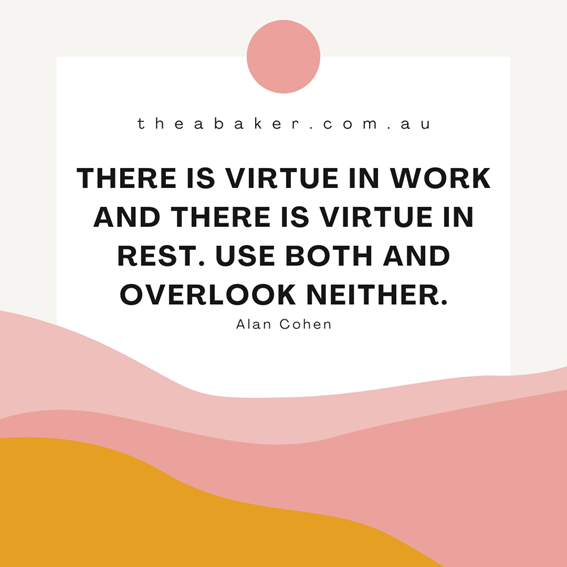The holiday edition – taking a break
The holiday edition – taking a break
Starting a PhD in the same year as your eldest child is starting Year 12, in addition to running a private practice and co-running a household full of children and two high-maintenance Dachshunds has been quite the challenge! My organisational, time and people-management skills have honestly been tested to my limits, but I have truly loved every minute of it. So far, I’ve written close to 18000 words (not including all the words I write for the Thea Baker Wellbeing (TBW) blog every week) and I have cited well over 100 articles. Ask me anything about trauma-informed physical activity and I’m likely to bore you senseless!! But it’s definitely time for me to take a couple of weeks rest – believe it or not my natural set point is very heavily on the introverted end of the spectrum so I’m heading off to the UK for a couple of weeks for a mixture of family visit and training (because of course there’s going to be some learning!).

You see, the human body is designed to thrive on a series of short sprints. It definitely wasn’t designed for pandemics, social isolation, and super-human endurance events. Rest – whether in the form of short breaks or longer periods of time off work, leave, holidays are vital to promote mental health, boost creativity, increase productivity, promote wellbeing, reduce stress, improve mood, and revitalise relationships. We’re all unique individuals. That is the foundation of my work – appreciating the individual difference and working with that difference – so finding our own rest ‘sweet spot’ is super important (and after the last couple of years, probably needs a little reset). I know for example that I’m an endurance kind of human. Back when I used to swim competitively, I used to do the 800m and 1500m events in the pool and I loved the ocean swims up to 5km. I’m the person that just finds it kind of comfortable sitting at the almost point of vomit for lap after lap. So, it’s not surprising that I also tolerate working long hours and going for lots of days before having a good rest day. But I am learning how important breaks are and so I’m sharing my learnings with you this week.
Reducing stress
We all know that stress is an intrinsic aspect of modern life. For some of us it can act like a stimulant. Chronic (long-term) stress though suppresses our immune system and increases our risk of disease. During stressful experiences we enter that fight-flight state of physiological arousal. Rest activates the other, counter aspect of our nervous system that helps return us to homeostasis.
Boosts creativity
Taking time off or away from our usual work and taking time to rest and relax allows the space to become more creative. Rest helps us to refill our reserves, and it literally allows us to experience increasing solutions to open-ended problems.
Improving productivity
Just like with other muscles, our brain is less functional when it’s tired. We are always more productive and more efficient when we have taken some rest-time.
Enhancing decision-making
Rest improves our ability to make decisions. Long periods of working without a break reduces our concentration and can depreciate our emotional capacity.
Rest with purpose
Rest is more significant and helpful when we do it purposefully. Aside from booking a holiday, here are some little tips for being purposeful rest into our daily lives:
- Practice gratitude
- Take deep breaths
- Cultivate healthy habits (exercise, mindful practices like meditation and yoga)
- Practice good sleep hygiene (screen-time, phones out of the bedroom and a regular wake-up time)

Dr Saundra Dalton-Smith has researched rest and has established that it should look and feel like restoration in seven different areas of our lives:
- Physical rest: can be active or passive. Passive rest includes sleeping and napping, whilst active physical rest can resemble restorative activities like stretching, massage or bodywork therapy or yin yoga.
- Mental rest: this about taking short, scheduled breaks away from our work – that might look like a screen-break if we spend long stretches in front of the computer or keeping a notepad by our bed to write things down if there’s a lot of procrastinating at night.
- Sensory rest: all our senses are bombarded all day by artificial lights, all the screens, music, background noises from machines and multiple conversations that leave us frazzled at a sensory level. Taking deliberate phone-free time, engaging in low sensory activities like meditation or floatation tanks can all support sensory rest.
- Creative rest: in order to be operating optimally in terms of problem-solving or brainstorming difficult situations we need creative rest – it could look like time in nature, or it could be creating a really great workspace providing awesome creative inspiration.
- Emotional rest: this one requires the courage to be authentic – it looks like answering “are you ok?” truthfully or saying “no” when you might usually and reluctantly concede to do things you’d rather not.
- Social rest: understanding which relationships provide us with rest and restoration as opposed to those that are exhausting or draining. Hanging out with people who share your values can be a great starting place.
- Spiritual rest: this allows us to connect beyond the physical, mental, and social spheres and find spaces for deep belonging, love, acceptance, and a higher purpose. Tai Chi, Qi Gong, meditation as well as prayer all support our spiritual rest.
If you’d like to explore your mental health and would like a space to talk about how you might navigate taking some rest, please get in touch with us: www.theabaker.com.au / hello@theabaker.com.au / 03 9077 8194.
